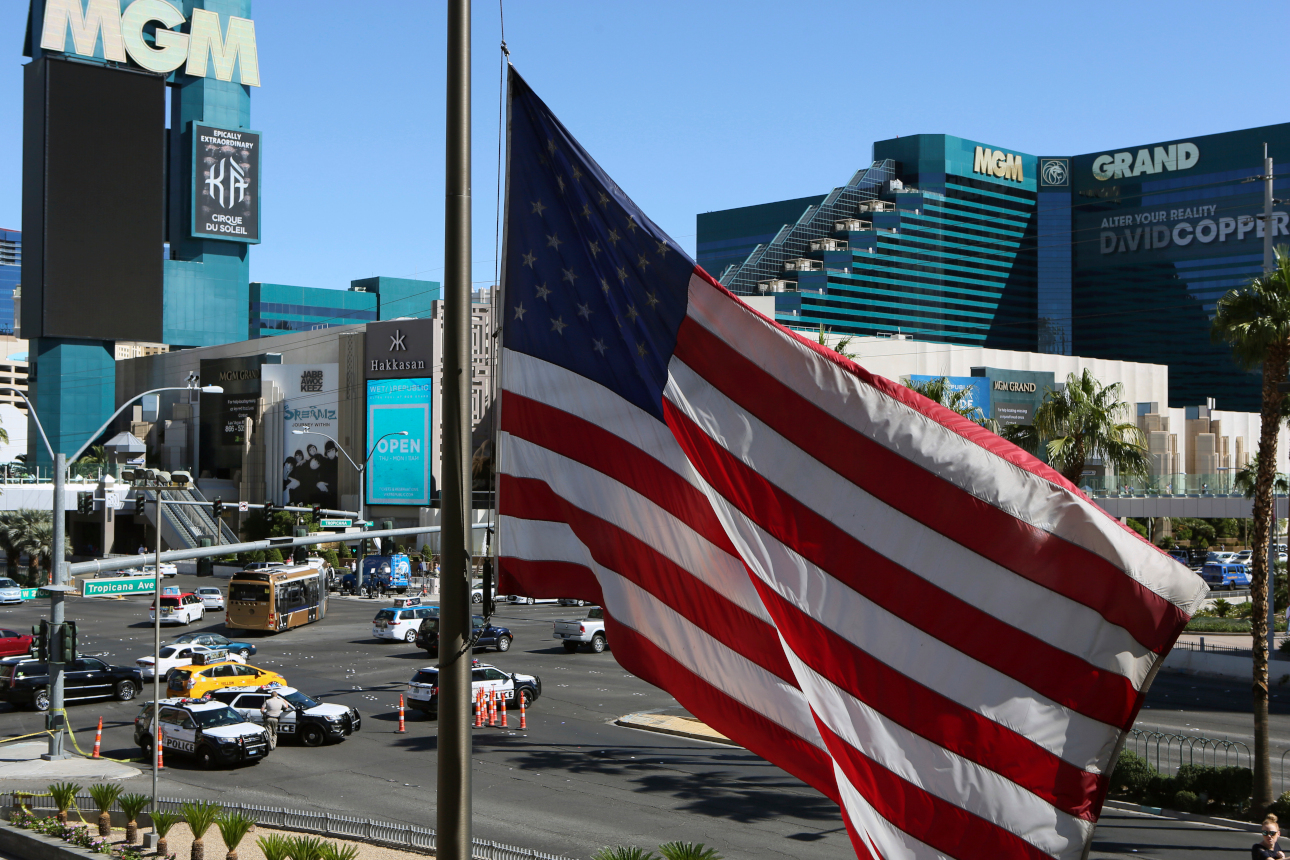
ST. GEORGE — As the first anniversary of the Las Vegas shooting nears, the Vegas Strong Resiliency Center is encouraging survivors of the incident to apply for compensation and to seek available resources if needed.

Those who were present at the Route 91 Harvest Festival on Oct. 1, 2017, when a gunman opened fire on over 22,000 concertgoers, killing 58 people and wounding 851, are encouraged to submit an application to the Nevada Victims of Crime Program to receive reimbursement for out-of-pocket expenses related to the incident such as counseling.
Read more: Police release 81-page report detailing Las Vegas shooting massacre
The application must be submitted by the one-year anniversary of the shooting on Oct. 1.
Anyone who was there at the shooting is encouraged to apply, even if they live outside of Nevada, have not acquired related expenses or don’t feel a need for assistance at this time. The program can offer reimbursement later if a victim decides to seek future help, but the application must be filled out before the upcoming deadline.
‘It kind of shakes our world’
Approximately 20 percent of people who experience a traumatic event will develop post-traumatic stress disorder, according to the Sidran Traumatic Stress Institute. PTSD can cause a person to experience flashbacks, nightmares, anxiety, avoiding situations or places that remind them of the event or isolating themselves. People with PTSD may also experience a trigger, something that causes them to relive the event.
Almost everyone goes through a period of time after a traumatic event where they experience PTSD symptoms, which is acute stress reaction. When these symptoms don’t resolve after a month, and interfere with their daily life, it is diagnosed as PTSD.
“When we experience something traumatic, especially something violent, it kind of shakes our world,” said Victor Baumgarten, a licensed clinical social worker at Intermountain Psychiatry and Counseling. “We don’t really know what to do with that psychologically a lot of the time because it doesn’t fit with what our beliefs are about the world and how we fit in it.”
Sometimes a person who has a normal recovery can still develop PTSD later in life if they, or someone they’re close to, experiences a trauma. It can even happen at the news of an event years later, which is why the Vegas Strong Resiliency Center recommends that survivors of last year’s shooting apply for the program in case they need it in the future, especially as the anniversary of the event approaches, as it can be a difficult time for many.
For some, the anniversary of an event will be a trigger for years to come, Baumgarten said. It is generally a time of stress for everyone who was involved since it reminds them of what they went through. But some people are able to turn it around, whether by nature or through therapy, so that it becomes post-traumatic growth instead.
“A lot of people can reverse that,” Baumgarten said. “They can take that anniversary and instead of it being ‘the anniversary of when something bad happened to me’ it can be ‘the anniversary of when I survived.'”
It is also possible for those close to a person who experienced trauma to develop secondhand PTSD. They might have many of the same symptoms, like nightmares, anxiety and hypervigilance.
PTSD is treated through therapy and medications for anxiety and depression, but Baumgarten said the most important thing is to have someone to confide in about what happened, someone to provide emotional support, and that person does not necessarily have to be a therapist.
Even for those who feel like they had a natural recovery and are not currently experiencing PTSD, it can still be a good idea to talk about it with someone, especially during stressful times like a one-year anniversary.
“I don’t think it ever hurts to be able to talk to a professional about it and process it and make sure that you are doing as well as you think you are,” Baumgarten said.
Southern Utah offers many local mental health resources including the Southwest Behavioral Health Center, Intermountain Healthcare St. George psychiatry and counseling, a list of Cedar City mental health providers and the Dixie Regional Behavioral Medicine Unit. The Doctors’ Volunteer Clinic offers free mental health services for low-income residents.
For more information about resources, the Nevada Victims of Crime Program or to submit an application for compensation, visit the Vegas Strong Resiliency Center website or call 833-299-2433.
Email: [email protected]
Twitter: @STGnews | @MikaylaShoup
Copyright St. George News, SaintGeorgeUtah.com LLC, 2018, all rights reserved.